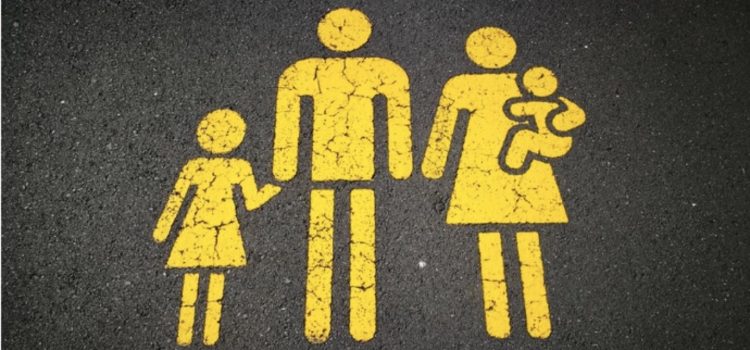

This article is an excerpt from the Shortform book guide to "Untamed" by Glennon Doyle. Shortform has the world's best summaries and analyses of books you should be reading.
Like this article? Sign up for a free trial here .
Can you change your core beliefs? What are the benefits of changing negative beliefs about marriage and family?
As explained in Glennon Doyle’s book Untamed, she achieved freedom from her captivity by systematically deconstructing her beliefs and assumptions. By deconstructing prior beliefs, she can separate herself from social structures and institutions that do not reflect who she is and what she believes. Doyle built a new family, faith, and worldview based on consciousness rather than complacency.
Read on for an overview of Doyle’s advice for embracing deconstruction and how to change your core beliefs about marriage and family.
Embracing Deconstruction
Learning how to change your core beliefs first requires examining areas of your life where emotion, intuition, and imagination are suppressed. By deconstructing those areas, you can let these powerful aspects of yourself shine.
Deconstruction requires dismantling old beliefs and practices inherited from your culture, giving you a clean slate upon which to reconstruct a new life that better reflects your current values and goals. (Shortform note: Deconstructing your beliefs not only allows you to create a new life that’s more aligned with your values, but also allows you to more easily engage in change and creativity. In Think Again, Adam Grant says that the crucial ability to rethink your beliefs allows you to develop new solutions and ideas for breaking free of old mindsets.)
In this article, we’ll explore how author Glennon Doyle deconstructed her beliefs and practices about marriage, motherhood, and family in creating a new life with her partner Abby. Keep reading to find out how to change your core beliefs according to Doyle’s experience.
Deconstructing Marriage, Motherhood, and Family Structure
As Doyle embarked on a new relationship with Abby and began to rewrite her vision for the future, she examined the life she had been living and saw that it was limited, narrowly defined, and based on society’s expectations. Doyle’s conditioning provided the framework for her life, but she realized that her true, wild self was too dynamic and vibrant to be confined by this framework. She began reconnecting to her true self by examining the foundational beliefs informing her life and then sought to create new ideas that better matched the life she wanted for herself.
(Shortform note: Deconstructing your foundational beliefs is an essential step to living your most authentic life, but you may not feel ready for it. Experts concede that it can be a tough process—requiring you to examine your deepest self closely, let go of things you’re attached to, or confront unpleasant emotions. However, the happiness and freedom you gain from the process is well worth the struggle.)
How to Change Your Beliefs
During her life in captivity, Doyle adhered to the cultural mandates that women should be quiet, pleasing, agreeable, and self-sacrificing. She believed that the best way a woman can love the people in her life and her community is to be selfless and put her desires last. In her life, this showed up in three ways:
- She tried to be a dutiful wife. She went through the motions of sex and intimacy while neglecting her desires.
- She tried to be a selfless mother. She operated under the assumption that the way you show love and devotion to your children is through self-sacrifice.
- She maintained a traditional marriage and family structure. She believed that her children’s well-being depended on maintaining a traditional family structure, which she had to preserve at the expense of her happiness and fulfillment. (Shortform note: Many women—like Doyle—stay in unhappy marriages for their children, but studies show that children often suffer when their parents are in conflict, feeling insecure in the tense home environment.)
| How to Change Your Beliefs: Balancing Selflessness and Self-Care Doyle criticizes the societal expectation that women should be selfless, but you may not be ready—or willing—to completely reject this aspect of your nature. If you’re still wondering how to change your core beliefs about selflessness, there are ways that you can integrate selflessness into your life without sacrificing your well-being by cultivating a balance between selflessness and self-care. Selflessness can help you serve others, be more empathetic, and tune into the needs of those around you. In marriage, tuning into your partner can create intimacy, and empathically connecting to the needs of children can foster their well-being. But as Doyle notes, being too selfless has many negative consequences, especially when it drives you to neglect your own needs. By balancing your selflessness with rejuvenating self-care practices, you can both honor your needs and fuel yourself for the necessary emotional work of caring for the people in your life. There are numerous practical ways that you can bring self-care into your life: You can keep a journal, play your favorite music and dance, take a 10-minute nap, eat your favorite food, take a walk, or get a massage. You can also set aside parts of your day as sacred time just for you (for example, when you’re drinking your coffee or winding down after work). Taking this time for yourself will allow you to balance your needs with the needs of others. |
Creating New Beliefs
Doyle’s new love for Abby—and for her “true self” that emerged—forced her to question everything she believed. For Doyle, changing your core beliefs means making significant changes in three areas where you might hold restrictive beliefs: marriage, parenthood, and family structure.
Marriage
Doyle deconstructed her beliefs about what it meant to be in an intimate relationship. In her new relationship, she experienced a sexual awakening that allowed her to tune into her desires. She abandoned the idea that she must be pleasing and performative—instead forming a new belief that she deserves to experience pleasure in her intimate relationships.
(Shortform note: While many women think that putting their partner’s needs before their own is the “right” way to be intimate, rethinking these beliefs can lead to more fulfilling intimate relationships. One way to change your core beliefs is to become more aware of your desires and check in with yourself before being intimate with another person. A self-check-in helps you assess what you want from the experience and express your desires.)
Parenthood
Doyle deconstructed her beliefs about what it meant to be a parent. As she pursued a new relationship with Abby, Doyle’s primary concern was for her children and for the upheaval that they would experience in their lives. She realized, however, that although the changes may be disruptive, it was important for her children to see their mother living her most authentic, fulfilled life. She wanted to model happiness and fulfillment for them rather than self-sacrifice—she decided to demonstrate how to change your core beliefs unapologetically.
(Shortform note: Many authors and researchers agree that seeing happy adults provides important benefits for children. In Modelling Happiness, Reen Rose says that when children see adults being curious, pursuing new ideas, and engaging in enjoyable activities, they witness both what it looks like to be happy and also learn skills (such as resiliency, bravery, and confidence). These skills will help children to pursue their own happiness as they mature.)
Family Structure
She deconstructed her beliefs about family structure. She realized that family structure can diverge from a nuclear family and still provide love, support, and stability. She rethought her assumption that she should maintain the nuclear family at all costs and discovered that a healthy family structure evolves and changes to fit the needs of each of its members.
(Shortform note: Doyle’s assumption that the nuclear family should be maintained at all costs likely comes from societal messaging that this family structure is “best”—but studies show that any family that provides love, protection, and support is “best.” A larger societal trend towards accepting a wide range of family arrangements mirrors Doyle’s experiences with how to change your core beliefs. Research shows that an increasing percentage of the American population accepts and supports non-traditional family structures.)

———End of Preview———
Like what you just read? Read the rest of the world's best book summary and analysis of Glennon Doyle's "Untamed" at Shortform .
Here's what you'll find in our full Untamed summary :
- Glennon Doyle's story of freeing herself from society's rules and expectations
- Why you should rebuild your life using emotion, intuition, and imagination
- A look at how young women are taught to repress their emotions and desires






